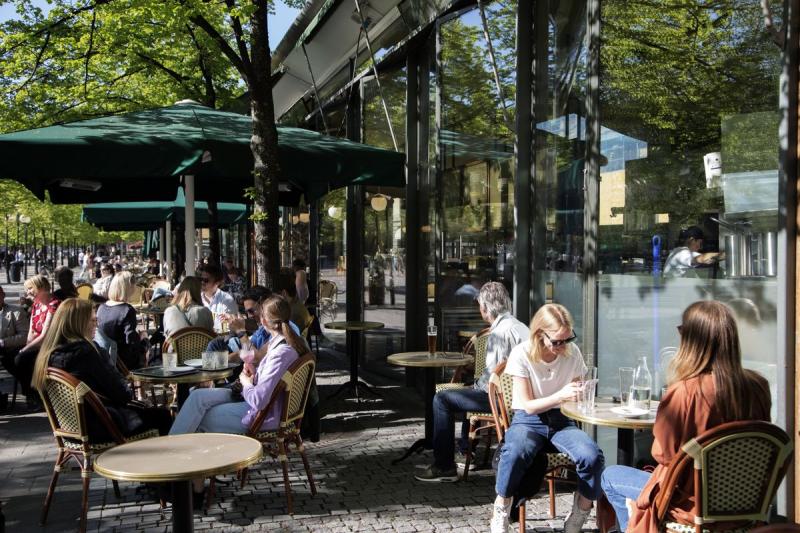WHO Special Envoy Heaps Praise on Sweden's Covid Strategy
Category: News & Politics
Via: dean-moriarty • 5 years ago • 9 commentsBy: Charles Daly (Bloomberg. com)


Sweden has made phenomenal progress in developing herd immunity and the data is impressive and encouraging. France currently has twice the infection rate as Sweden.

By Charles Daly
WHO Special Envoy Heaps Praise on Sweden's Covid Strategy

By Charles Daly
People sit at tables outside a cafe at Kungstrdgrden in Stockholm, in May.
Photographer: Loulou D'Aki/Bloomberg
People sit at tables outside a cafe at Kungstrdgrden in Stockholm, in May.
One of the World Health Organization's six special envoys on Covid-19 has highlighted Sweden's virus response as a model that other countries should be emulating in the long run.
Dr. David Nabarro, speaking in a radio interview with Magic Talk in New Zealand, said, "For all countries, the real approach we've got to aim for is through behavior that's adopted everywhere."
Nabarro said the key to a sustainable coronavirus strategy is trust, and pointed to Sweden as a case in point. The Nordic nation imposed far fewer restrictions on movement than others, and instead relied on Swedes to act responsibly and embrace the guidelines laid out by the country's health authorities.
"In Sweden, the government was able to trust the public and the public was able to trust the government," Nabarro said.
To be sure, Sweden's Covid-19 death rate is considerably higher than in many other countries, at 57 per 100,000. But the pace of new infections and deaths has slowed markedly since the end of June. The development prompted Sweden's national health agency to propose raising the limit on certain public gatherings to 500 people from 50.
In contrast, other governments around the world are once again imposing stricter measures amid a resurgence in cases.
Nabarro described a lockdown as "a blunt instrument" that "really bites into the livelihoods of everybody, particularly poorer people and small businesses."
In response to the envoy's remarks, the director-general of Sweden's public health agency, Johan Carlson, said in an interview with newspaper Svenska Dagbladet: "We are one of the few countries with a limited spread of infection, unlike several countries in Europe where the infection is returning sharply."
"I call it the champagne cork effect," Carlson said.
But Sweden's Covid strategy still has many critics, including from within the country. Fredrik Elgh, a professor of virology at Umea University, points to the high death toll as evidence the light-touch approach has failed.
"We have almost 6,000 dead. We have betrayed our elderly," he said in the Svenska Dagbladet report. "We should test and trace infection much more. But the Public Health Agency does not want that."
Carlson of the public health agency and Sweden's minister for health and social affairs, Lena Hallengren, are due to hold a press conference on the country's Covid strategy later on Monday.

Tags
Who is online
75 visitors

Some really good news coming out of Sweden. Check out the data new daily cases and deaths they are looking good.
duh. said that when this crap first started.
If we simply had the masks at the beginning, we could have required everyone to wear a mask, social distance and wash their hands, instead of destroying so many lives with that horrendous lie & advice from Dr Fauci.
I spent a lot of time trying to get good data on Sweden.
It was in most cases, contradictory.
During the same period of time politicians claimed that Sweden was approaching "herd" immunity while random antibody studies claimed that only about 7% of the population had been infected (or had antibodies).
You probably need to speak Swedish to find the useful information.
It helps that Sweden has a relatively low population density 63 per square mile - about like combining Oregon with Minnesota in total population and density. That seems to slow down the spread somewhat.
It also helps that the country pretty much closes down during parts of the summer for vacations.
Their approach may be the greatest thing since sliced bread - we won't really know for another 6 months or so.
It certainly is a good approach if you want to reduce nursing home crowding and improve the balance sheet for your country's retirement fund obligations.